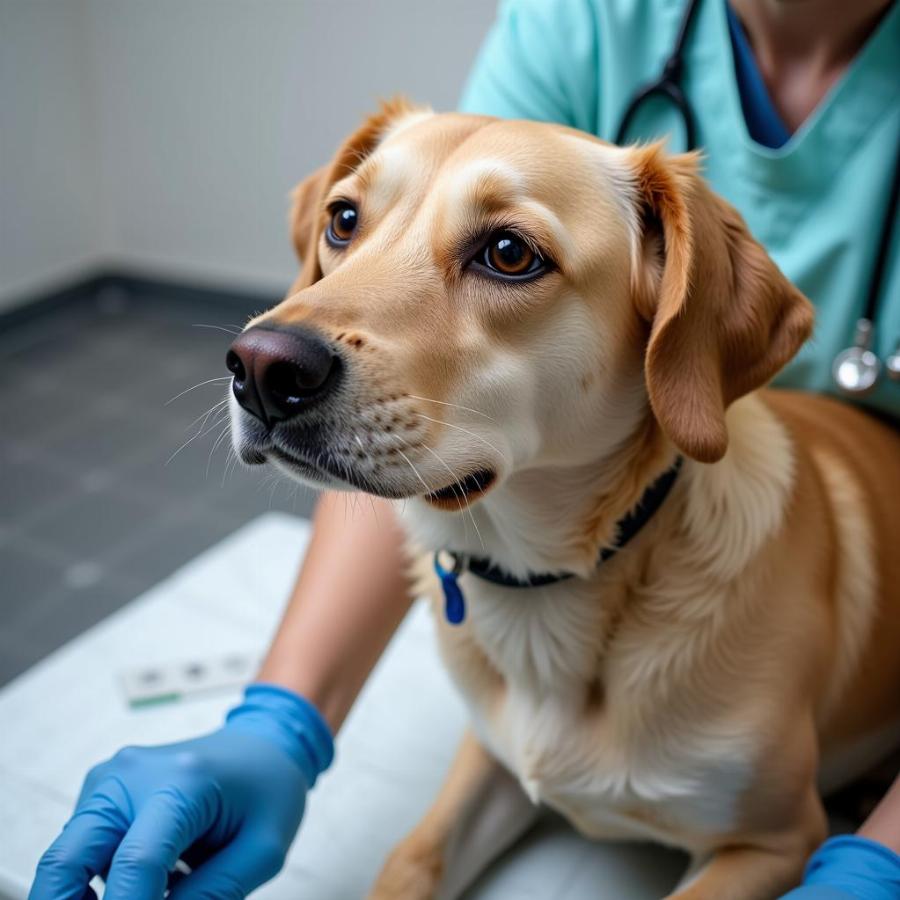Xylitol for dogs is a serious concern, and understanding the dangers it poses is crucial for any pet owner. The Wall Street Journal (WSJ) and other reputable sources have highlighted the risks associated with this artificial sweetener, which is becoming increasingly common in everyday products. This article will delve into why xylitol is toxic to dogs, what products contain it, and what to do if your dog ingests it. Ignoring this warning could have dire consequences for your canine companion.
Understanding the Dangers of Xylitol for Dogs
Xylitol is a sugar alcohol used as a sugar substitute in many products. While it’s safe for human consumption, it’s extremely toxic to dogs. Even small amounts of xylitol can cause a rapid release of insulin in dogs, leading to hypoglycemia (low blood sugar). This can manifest in symptoms such as weakness, vomiting, seizures, liver failure, and even death. The severity of the reaction depends on the dog’s size and the amount of xylitol ingested.
Identifying Products Containing Xylitol
One of the most challenging aspects of protecting your dog from xylitol poisoning is its prevalence in a wide range of products. While it’s commonly found in sugar-free gum and candies, it’s increasingly being added to other products like peanut butter, toothpaste, baked goods, vitamins, and even some medications. Always check the ingredient list of any product before giving it to your dog. Look for variations of the name, such as “birch sugar” or “wood sugar”.
What to Do if Your Dog Ingests Xylitol
If you suspect your dog has ingested xylitol, immediate action is crucial. Contact your veterinarian or the ASPCA Animal Poison Control Center immediately. Time is of the essence in these situations. Do not induce vomiting unless instructed by a professional. Be prepared to provide information about the product ingested, the estimated amount consumed, and your dog’s weight and symptoms.
Why the WSJ Warning Label Matters
The Wall Street Journal and other media outlets have played a vital role in raising public awareness about the dangers of xylitol for dogs. Their coverage helps inform pet owners about this hidden threat and emphasizes the importance of careful label reading. These warnings are not to be taken lightly.
 Dog Receiving Veterinary Care After Xylitol Ingestion
Dog Receiving Veterinary Care After Xylitol Ingestion
Preventing Xylitol Poisoning in Dogs
The best way to protect your dog from xylitol poisoning is prevention. Keep all products containing xylitol out of your dog’s reach. Store them in high cabinets, closed drawers, or other secure locations. Educate your family members, especially children, about the dangers of xylitol for dogs. When offering treats, stick to dog-specific products that are guaranteed xylitol-free. When in doubt, err on the side of caution and don’t give your dog anything that you’re unsure about.
Can dogs have any amount of xylitol?
No, even small amounts of xylitol can be toxic to dogs.
What are the first signs of xylitol poisoning in dogs?
Early signs can include vomiting, weakness, lethargy, and loss of coordination.
Conclusion
Xylitol poses a significant threat to dogs. Heeding warnings from sources like the WSJ and taking proactive steps to prevent xylitol ingestion can save your dog’s life. Always be vigilant about checking ingredient labels and keep xylitol-containing products safely out of your dog’s reach. Your furry friend’s health depends on it.
FAQ
- What is xylitol?
Xylitol is a sugar alcohol used as a sugar substitute. - Why is xylitol dangerous for dogs?
It causes a rapid release of insulin, leading to hypoglycemia. - What products contain xylitol?
Many products, including sugar-free gum, peanut butter, and toothpaste. - What should I do if my dog eats xylitol?
Contact your vet or the ASPCA Animal Poison Control Center immediately. - How can I prevent xylitol poisoning?
Keep xylitol-containing products out of your dog’s reach. - Is xylitol safe for other pets?
While primarily a concern for dogs, it can also be harmful to other animals. Consult a veterinarian for specific guidance. - Where can I find more information about xylitol and pet safety?
The ASPCA Animal Poison Control Center and your veterinarian are excellent resources.
Related Articles
- Dog-Friendly Foods: What’s Safe and What’s Not
- Understanding Dog Nutrition: A Comprehensive Guide
- Emergency Preparedness for Pet Owners
Beaut Dogs is your trusted source for all things dog-related. We provide reliable and in-depth information about the canine world, from breed characteristics and care tips to health and nutrition advice. When you need expert support, contact us at Email: [email protected] for detailed and accurate answers from Beaut Dogs. Visit https://beautdogs.com today to explore the wonderful world of dogs!